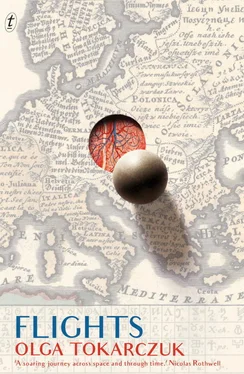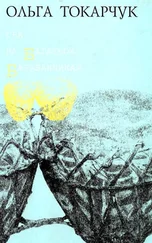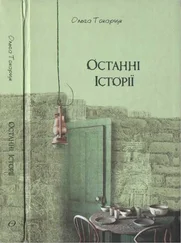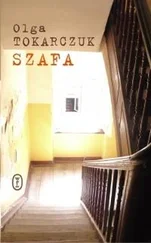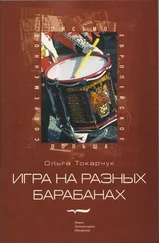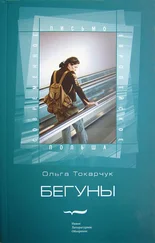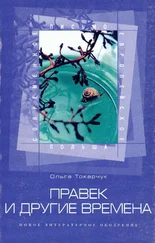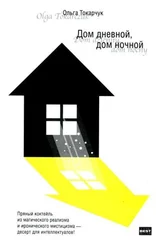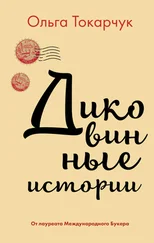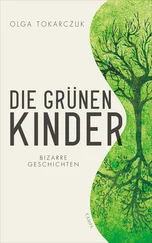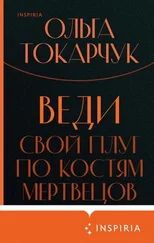They’d set up in the designated areas, at campsites where they were always in the company of others just like them, having lively conversations with their neighbours surrounded by socks drying on tent cords. The itineraries for these trips would be determined with the aid of guidebooks that painstakingly highlighted all the attractions. In the morning a swim in the sea or the lake, and in the afternoon an excursion into the city’s history, capped off by dinner, most often out of glass jars: goulash, meatballs in tomato sauce. You just had to cook the pasta or the rice. Costs were always being cut, the Polish zloty was weak – penny of the world. There was the search for a place where you could get electricity and then the reluctant decamping after, although all journeys remained within the same metaphysical orbit of home. They weren’t real travellers: they left in order to return. And they were relieved when they got back, with a sense of having fulfilled an obligation. They returned to collect the letters and bills that stacked up on the chest of drawers. To do a big wash. To bore their friends to death by showing pictures as everyone attempted to conceal their yawns. This is us in Carcassonne. Here’s my wife with the Acropolis in the background.
Then they would lead a settled life for the next year, going back every morning to the same thing they had left in the evening, their clothes permeated by the scent of their own flat, their feet tirelessly wearing down a path in the carpet.
That life is not for me. Clearly I did not inherit whatever gene it is that makes it so that when you linger in a place you start to put down roots. I’ve tried, a number of times, but my roots have always been shallow; the littlest breeze could always blow me right over. I don’t know how to germinate, I’m simply not in possession of that vegetable capacity. I can’t extract nutrition from the ground, I am the anti-Antaeus. My energy derives from movement – from the shuddering of buses, the rumble of planes, trains’ and ferries’ rocking.
I have a practical build. I’m petite, compact. My stomach is tight, small, undemanding. My lungs and my shoulders are strong. I’m not on any prescriptions – not even the pill – and I don’t wear glasses. I cut my hair with clippers, once every three months, and I use almost no make-up. My teeth are healthy, perhaps a bit uneven, but intact, and I have just one old filling, which I believe is located in my lower left canine. My liver function is within the normal range. As is my pancreas. Both my right and left kidneys are in great shape. My abdominal aorta is normal. My bladder works. Haemoglobin 12.7. Leukocytes 4.5. Haematocrit 41.6. Platelets 228. Cholesterol 204. Creatinine 1.0. Bilirubin 4.2. And so on. My IQ – if you put any stock in that kind of thing – is 121; it’s passable. My spatial reasoning is particularly advanced, almost eidetic, though my laterality is lousy. Personality unstable, or not entirely reliable. Age all in your mind. Gender grammatical. I actually buy my books in paperback, so that I can leave them without remorse on the platform, for someone else to find. I don’t collect anything.
I completed my degree, but I never really mastered any trade, which I do regret; my great-grandfather was a weaver, bleaching woven cloth by laying it out along the hillside, baring it to the sun’s hot rays. I would have been well suited to the intermingling of warp and weft, but there’s no such thing as a portable loom. Weaving is an art of sedentary tribes. When I’m travelling I knit. Sadly in recent times some airlines have banned the use of knitting needles and crochet hooks on board. I never learned, as I say, any particular line of work, and yet in spite of what my parents always used to tell me, I’ve been able to get by, working different jobs as I go, staying afloat.
When my parents went back to the city after their twenty-year experiment, when they had finally tired of the droughts and the frosts, healthy food that ailed all winter in the cellar, the wool from their own sheep assiduously stuffed inside the gaping mouths of comforters and pillows, they gave me a little bit of money, and I set off on my first trip.
I took odd jobs wherever I happened to be. In an international factory on the outskirts of a large metropolis I assembled antennae for high-end yachts. There were a lot of people like me there. We were paid under the table, and never questioned about where we came from or what our plans were for the future. Every Friday we got our money, and whoever didn’t feel like it anymore simply didn’t come back on Monday. There were school graduates taking a break before applying to university. Immigrants still en route to that fair, idyllic country they were sure was somewhere in the West, where people are brothers and sisters, and a strong state plays the role of parent; fugitives from their families – from their wives, their husbands, their parents; the unhappily in love, the confused, the melancholic, those who were always cold. Those running from the law because they couldn’t pay off their debts. Wanderers, vagabonds. Crazy people who’d wind up in the hospital the next time they fell ill again, and from there they’d get deported back to their countries of origin on the basis of rules and regulations shrouded in mystery.
Just one person worked there permanently, an Indian man who had been there for years, though in reality his situation was no different from ours. He didn’t have insurance or paid holidays. He worked in silence, patiently, at an even keel. He was never late. He never found any need to take time off. I tried to talk some people into setting up a trade union – these were the days of Solidarity – if only for him, but he didn’t want to. Touched by the interest I’d taken in him, however, he began to share with me the spicy curry he brought in a tiffin-carrier every day. I no longer remember what his name was.
I was a waitress, a maid in an upscale hotel, and a nanny. I sold books. I sold tickets. I was employed in a small theatre for one season to work in wardrobe, making it through that long winter ensconced backstage amidst heavy costumes, satin capes and wigs. Once I’d finished my studies, I also worked as a teacher, a rehab counsellor, and – most recently – in a library. Whenever I managed to save any money, I would be on my way again.
I studied psychology in a big, gloomy communist city. My department was located in a building that had been the headquarters of an S.S. unit during the war. That part of the city had been built up on the ruins of the ghetto, which you could tell if you took a good look – that whole neighbourhood stood about three feet higher than the rest of the town. Three feet of rubble. I never felt comfortable there; between the new communist buildings and the wretched squares there was always a wind, and the frosty air was particularly bitter, stinging you in the face. Ultimately it was a place that, despite reconstruction, still belonged to the dead. I still have dreams about the building where my classes were – its broad hallways that looked like they’d been carved into stone, smoothed down by people’s feet; the worn edges of the stairs; the handrails polished by people’s hands, traces imprinted in space. Maybe that was why we were haunted by those ghosts.
When we’d put rats in a maze, there was always one whose behaviour would contradict the theory, who couldn’t have cared less about our clever hypotheses. It would stand up on its little hind legs, absolutely indifferent to the reward at the end of our experimental route; disdaining the perks of Pavlovian conditioning, it would simply take one good look at us and then turn around, or turn to an unhurried exploration of the maze. It would look for something in the lateral corridors, trying to attract our attention. It would squeak, disoriented, until the girls would break the rules, remove it from the maze and hold it in their hands.
Читать дальше
